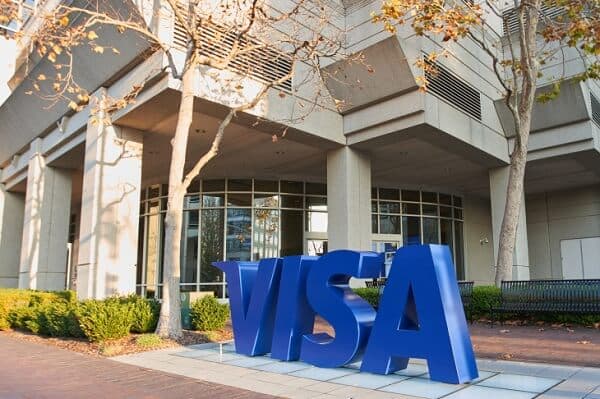Visa is Testing a Bitcoin API, But Don’t Expect Big Banks to Support Crypto Anytime Soon
Visa has created an API that lets banks offer bitcoin services to their customers. APIs, or application programming interfaces, are the connective tissue that drove the banking industry’s digital transformation and could be the link between digital assets and U.S. banks […]

Source: Shutterstock
key takeaways
key takeaways
- Visa’s API is in partnership with digital asset custodian Anchorage and allows banking customers to buy, sell, and hold digital assets through their banking apps
- Megabanks like JP Morgan Chase or Bank of America may be some of the last adopters, which don’t even offer traditional investing services through their online apps today
Visa has created an API that lets banks offer bitcoin services to their customers.
APIs, or application programming interfaces, are the connective tissue that drove the banking industry’s digital transformation and could be the link between digital assets and U.S. banks – who are keen to serve their crypto-customers but wary of handling bitcoin or other digital assets.
This API was created in partnership with Anchorage, a digital asset custodian for institutions. It lets participating bank customers plug into Anchorage’s platform so customers can buy, sell and hold bitcoin and other digital assets through their banking app, while Anchorage handles that activity behind the scenes. They’re piloting the API with the digital bank First Boulevard.
“Visa has now standardized this capability they’ve had for several years so it can be easily used across a variety of digital wallets or digital banks,” said Lisa Ellis, a general partner at MoffettNathanson.
APIs allow banks to connect and share data more easily; they can plug in to applications they want in their marketplace or ecosystem and save themselves time, money and other resources. It isn’t just about technological challenges though, banks also need to use APIs in a way that won’t run afoul of regulators.
Last month Anchorage received the first national trust charter from the U.S. Office of the Comptroller of the Currency, allowing it to become a regulated “crypto bank.”
Visa is piloting the API four months after PayPal made digital asset services available to its customers. While the two payment giants are important partners to each other, their digital asset services are competitive, Ellis said.
“Now that visa is rolling it out in a standardized way, you’d now expect to see crypto related capabilities proliferate massively across lots and lots and lots of wallets,” she said.
This doesn’t mean megabanks like Chase and Bank of America will necessarily bless bitcoin right away just because they can (they don’t even offer traditional investing services within their banking apps). Ellis said it’s likely they’ll be the last to offer bitcoin services to customers.
Neobanks and other fintech apps looking to bundle saving, spending and investing services will likely be the most keen to implement the Visa API. Square’s Cash App, SoFi, Stash and Robinhood do this already. Ellis said she expects traditional brokerages like Fidelity (which has a digital assets arm for institutions), to move next. And since Visa is such a global brand, much of the initial rollout may not even be in the U.S.
Visa has been studying cryptocurrency and building its team of experts on it for years. It has collaborated on digital asset offerings before with digital asset firms like Coinbase, BlockFi, Circle, Xapo, Crypto.com and Fold. This is the first time it’s helping a bank provide access to digital assets.





